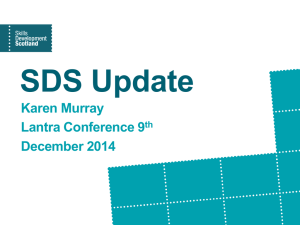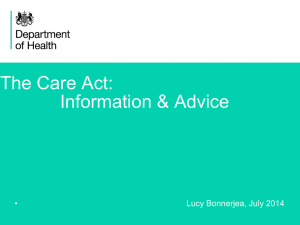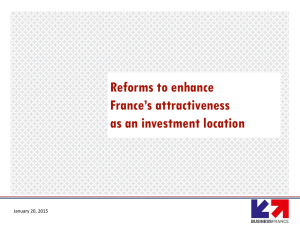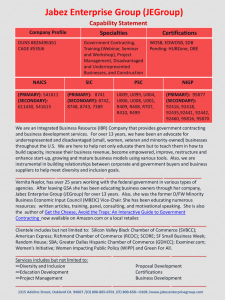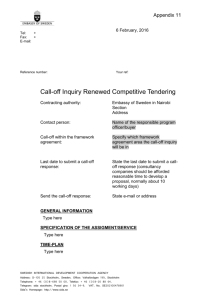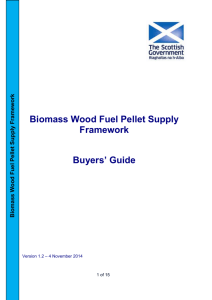Definition
advertisement
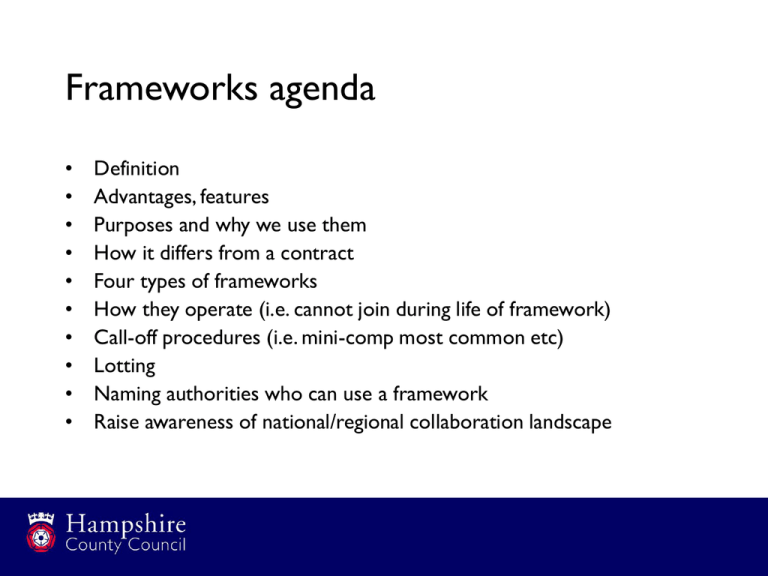
Frameworks agenda • • • • • • • • • • Definition Advantages, features Purposes and why we use them How it differs from a contract Four types of frameworks How they operate (i.e. cannot join during life of framework) Call-off procedures (i.e. mini-comp most common etc) Lotting Naming authorities who can use a framework Raise awareness of national/regional collaboration landscape Frameworks FAQ • What is a framework (how it differs from a contract) • Four types of frameworks • Purposes and why we use them • How they operate (i.e. cannot join during life of framework) • Call-off procedures (i.e. mini-comp most common etc) • Raise awareness of national/regional landscape Framework –definition per EU Regs • “an agreement or other arrangement between one or more contracting authorities and one or more economic operators which establishes the terms (in particular the terms as to price and, where appropriate, quantity) under which the economic operator will enter into one or more contracts with a contracting authority in the period during which the framework agreement applies”. Framework – plain English definition An agreement between a Contracting Authority and a supplier for the purpose of laying down the essential terms governing a series of specific contracts to be awarded during a given period (call-off). – duration – subject – prices – conditions of performance – quantities envisaged Regulations & Frameworks • Where a framework does not specify how to call-off, a mini-competition must take place • All capable supplies invited (cannot prequalify, de-selection may apply) • Bids in writing • Award must be based on criteria as detailed in the framework Frameworks - advantages • Meet EU requirement to aggregate spend • Mini-competitions and other types of call off contract are a fraction of the effort of a tender • Opportunities for several smaller suppliers to share the work rather than all the work to one contractor • Vehicle for collaboration between authorities • Flexible – don’t have to commit any spend Frameworks v contracts • A framework agreement is not a contract and can be overturned. • Contract must have – Offer – Acceptance – Consideration – Capacity to contract – Intention to create legal relations Four types of framework Multi-supplier, single user Multi-supplier, multi-user Single supplier, single user Single supplier, multiuser Frameworks - naming contracting authorities in the OJEU & contract • Include the identities of all the contracting authorities entitled to call-off under the terms of the framework agreement. The authorities can be individually named, or a recognisable class of contracting authority may be used – e.g. Central Government Departments, local authorities or health authorities in a particular region etc. It should be noted that European Commission guidance on frameworks indicates that classes of contracting authority should be defined in a manner that enables “immediate identification of the contracting authorities concerned. It is not considered to be sufficiently precise to refer to all contracting authorities in a particular region”. • When class descriptions do not allow ‘immediate identification of the contracting authorities concerned”, a reference to where details of the authorities covered can be obtained should be included in the notice. For example, if there is an accessible list of contracting authorities in a relevant “class”, or an organisation with responsibility for maintaining details of the members of a “class”, that list or organisation should be quoted Source: OGC Frameworks – calling off contracts as per the agreement • Call off mechanism – Direct award - Where the terms laid down in the framework agreements are sufficiently precise to cover the particular requirement, the authority can award the call-off without reopening competition – Mini-comp – Based on award criteria set out in the f’work. It should be noted that there is no scope, at this stage, to run a selection procedure, based on selection criteria - technical ability, financial standing etc. – Ranking • Pricing and pricing mechanisms • Terms and conditions Call-Off from Frameworks • Check OJEU Notice is compliant • Ensure you are fully aware of call-off procedure • Follow the call-off procedure – Mini competition – Catalogue – Cascade method Lotting • Definition: One of a number of categories of goods or services which a single procurement process has been divided into. The use of lots potentially allows for multiple providers to be appointed following one procurement process. An example might be a computer hardware procurement with one lot for "laptops" and a second lot for "desktops". • Examples of lotting – By supply market – By service – By geography – By scale/complexity of requirement • New procurement regs from April 2014 : There are a number of provisions relating to the use of lots. These are aimed at encouraging authorities to consider the structuring of opportunities to encourage SME participation. These include, for example, a requirement on a contracting authority to explain why, for contracts with a value over the threshold and under €500,000, it has decided not to split a contract into lots. Collaboration • • • • Government Procurement Service Pro5 SE7 HIOWPP


